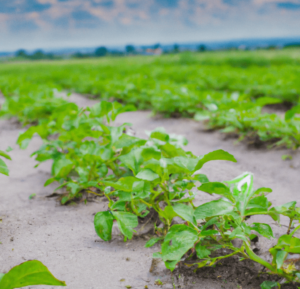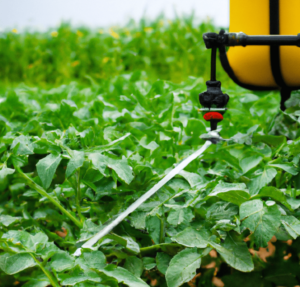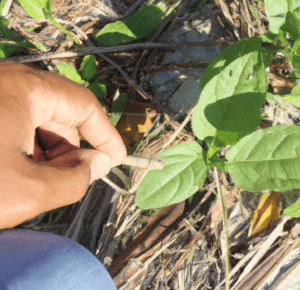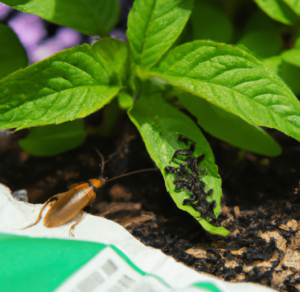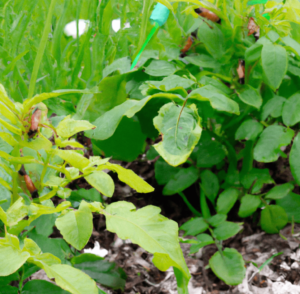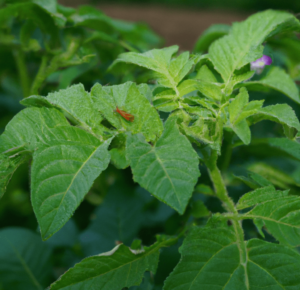Gardening is a lovely, relaxing hobby that people who participate find enjoyable and satisfying. But it may also be a difficult and time-consuming task, particularly when dealing with weeds. Herbicides are a crucial tool in gardening since they are chemicals that are used to restrict certain plant growth. By keeping weeds under control without harming the target plants, they enable gardeners to preserve the beauty and health of their gardens. There are many distinct varieties of herbicides, each having a unique use and application strategy. While some herbicides are used to treat the soil to stop weed seeds from developing, others are administered directly to the weeds. To make a well-kept garden free of weeds, they are frequently employed in conjunction with other gardening techniques including mulching and cultivation. Here’s what you need to know about the role of herbicides in gardening.
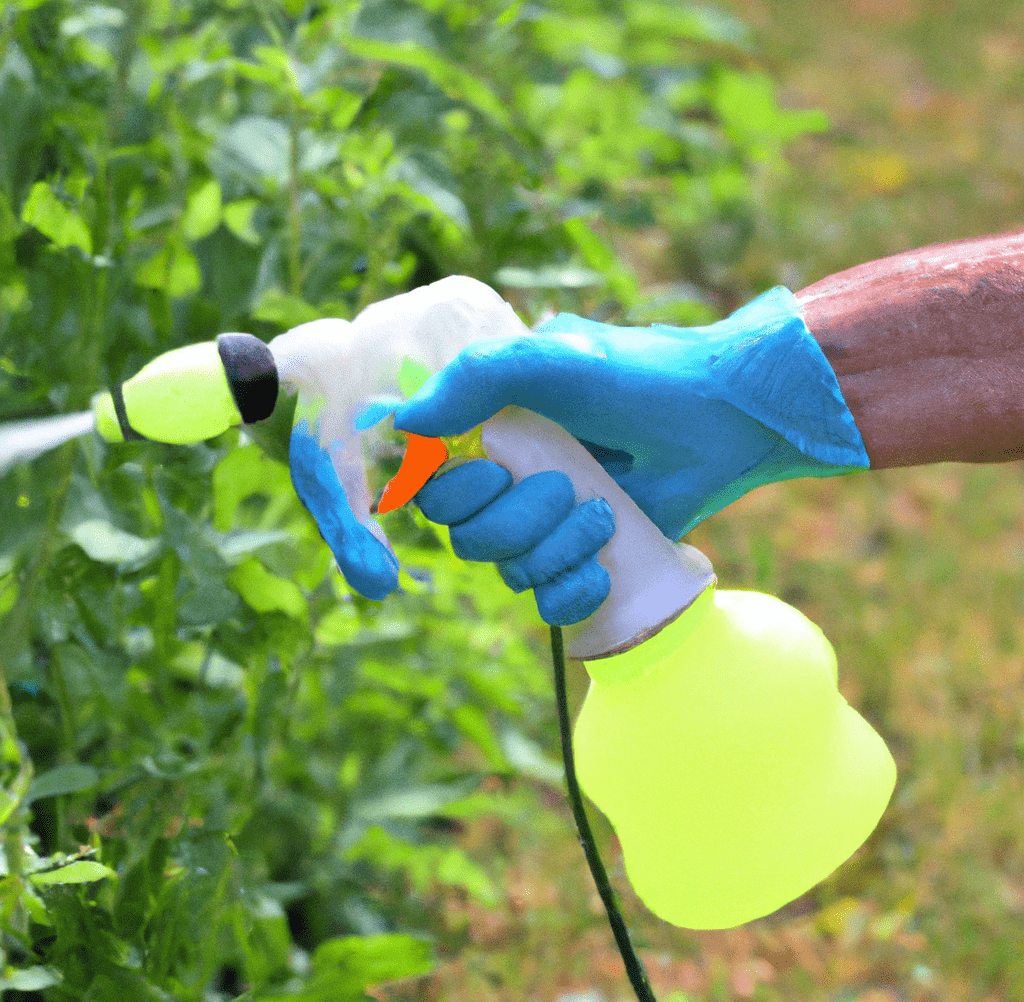
Types of Herbicides
The role of herbicides in gardening is to manage invasive plants in a variety of environments, including those in residential, commercial, and agricultural contexts. The kind of plants you wish to manage, the size of the area to be treated, and your personal preferences, such as whether you prefer natural or synthetic products, will all influence the sort of herbicide you choose. Here are a few herbicides to take into account for various uses:
- Landscape Herbicides: The role of chemical pesticides in modern agriculture include those that are intended for use in landscaped areas, such as parks, golf courses, and private lawns. They’re safer to use in high-traffic areas since they are designed to be less poisonous to desirable plants and animals.
- Natural Herbicides: Think about utilizing natural herbicides manufactured from plant extracts or other organic ingredients if you prefer to utilize natural, environmentally friendly solutions. These herbicides may be less effective and have a shorter shelf life than synthetic herbicides, but they are less likely to harm the environment.
- Plant-Specific Herbicides: These herbicides are made to target particular plant species, including weeds with broad leaves or weeds with grassy stems. They’re a wonderful option if you have a problem with particular types of weeds in your landscape because they are often more effective and have less of an effect on desirable plants.
- Systematic Herbicides: Herbicides that are absorbed by a plant’s roots and carried throughout the entire plant, destroying it from the inside out, are known as systemic herbicides. They can be used on lawns and other surfaces, although they are frequently utilized to control invasive species or woody shrubs.
The Different Types of Herbicides, Such As Selective and Non-selective
Chemicals called herbicides are applied to undesired plants to kill them. Depending on the plant species they target and the application technique, these compounds can either be selective or non-selective:
- Selective herbicides are designed to only destroy some plant species, such as weeds while protecting the targeted ones. They are therefore a fantastic option for farmers who wish to safeguard their crops against weeds without causing any harm to the actual crops. Herbicides that are selective in their effects include glyphosate and 2,4-D.
- Non-selective herbicides destroy any plant they come into contact with since they are not specific to any one species of plant. These herbicides are typically applied when the goal is to completely remove all vegetation from a big area, such as when preparing a site for building or land development. Glyphosate is an illustration of a non-selective herbicide.
- Although soap-based herbicides, such as potassium salts of fatty acids, are a form of a non-selective herbicide, they are safer and less enduring in the environment than chemical herbicides. These substances function by removing the plant’s protective cuticle, which causes the plant to dry up and die. They are frequently used to control weeds on-the-spot in manicured areas and in backyard gardens.
Explanation of How Each Type of Herbicide Works and When to Use It
The role of herbicides in gardening depends on what you wish to accomplish and comes in a variety of forms. is applied at various times, and in different ways:
- Contact herbicides harm plants by directly contacting them. They work best in the spring and summer because the weeds are young and actively developing at that time.
- Systemic herbicides penetrate the plant and disseminate throughout its system, destroying the plant from within. These herbicides work best when the weeds are already well-established and challenging to eradicate manually.
- Herbicides used prior to weed emergence stop weed seeds from sprouting and prevent weed growth.
- Herbicides used postemergence are applied after the weeds have already sprouted, as the name implies.
- Non-selective herbicides will destroy any plant they come into contact with, while selective herbicides target certain varieties of weeds.
To prevent harming your desired plants, it’s crucial to pick the appropriate type of herbicide for your garden and to carefully follow the label’s directions.
Pros and Cons of Using Herbicides
The role of herbicides in gardening is important which is why they have long been a preferred method for controlling weeds in gardens, but before applying one, it’s crucial to consider the advantages and disadvantages:
The Advantages of Using Herbicides
Herbicides can effectively suppress weeds and help you manage them in your garden. They enable you to take on massive weed infestations with little effort and are frequently quicker and more efficient than physically removing weeds or employing barriers. Furthermore, certain herbicides are designed to just kill particular weed species, making it simpler to eliminate weeds without harming your desired plants.
The Drawbacks of Using Herbicides
Even though the role of herbicides in gardening is vital, some herbicides can harm plants that are not intended targets, especially if you apply them liberally or if the wind blows them to other areas of your garden. Herbicides may also harm beneficial insects like pollinators or contaminate groundwater, among other unfavorable effects on the ecosystem. Overusing herbicides can also result in resistant weed populations that are more challenging to eradicate.
It’s vital to keep in mind that pesticides might linger in the soil for a while, possibly influencing the development and well-being of new seedlings you plant nearby. This could be a problem if you’re starting a new garden or sowing seeds for your upcoming crop.
Safety and Precautions
The role of herbicides in gardening is useful in keeping weeds out of a garden, but there are dangers associated with using chemical herbicides. Here’s how to safely use these chemical products:
- Prior to applying any herbicide, be sure to carefully read the label and directions. Be sure to carefully follow the directions and pay attention to any cautions or warnings.
- Wear protective clothing, such as gloves, long sleeve shirts, and long pants, to avoid coming into touch with the herbicide on your skin. Additionally, eye protection is strongly advised.
- Be aware of the wind when applying herbicides to prevent any unintentional drift to surrounding plants or water sources.
- Children and animals shouldn’t be near the area where you are applying herbicides. Before letting them back into the area, wait until the herbicide has completely dried.
- Herbicides should be stored properly away from food and other potentially contaminated goods in a cold, dry area. Keep the pesticides in their original, labeled containers.
- Herbicides should be disposed of in accordance with the label’s directions. Herbicides should not be dumped into drains, sewers, or bodies of water. For instructions on proper disposal, get in touch with your neighborhood garbage facility.
You can reduce the possible dangers connected with applying herbicides in your garden or other growing area by adopting these steps.
The Potential Health Risks Associated With the Use of Herbicides and How to Mitigate Them
Yes, the role of herbicides in gardening is important to control weeds but there are possible health concerns related to the usage of pesticides in agriculture and gardening. These dangers include endocrine disruption, skin irritation, respiratory issues, systemic toxicity, and an elevated risk of some malignancies.
Safe handling and application techniques should be used, such as wearing protective clothing and making use of adequate ventilation, to reduce these dangers. Herbicide usage can be decreased and the health of the soil and plants is improved by using alternative weed management techniques such as manual removal, mulching, cover crops, and compost.
Alternatives to Herbicides
Even though some may believe that the role of herbicides in gardening is unchangeable, chemicals aren’t the only choice. There are non-toxic solutions like vinegar or citric acid that can be used to control weeds and pests, and biological control approaches use natural predators or parasites to eliminate pests. Mulch is also an organic material that can be used to manage weeds by obstructing sunlight and slowing growth. These substitutes are safer and greener, providing a method to lessen reliance on dangerous chemicals and safeguard the environment.
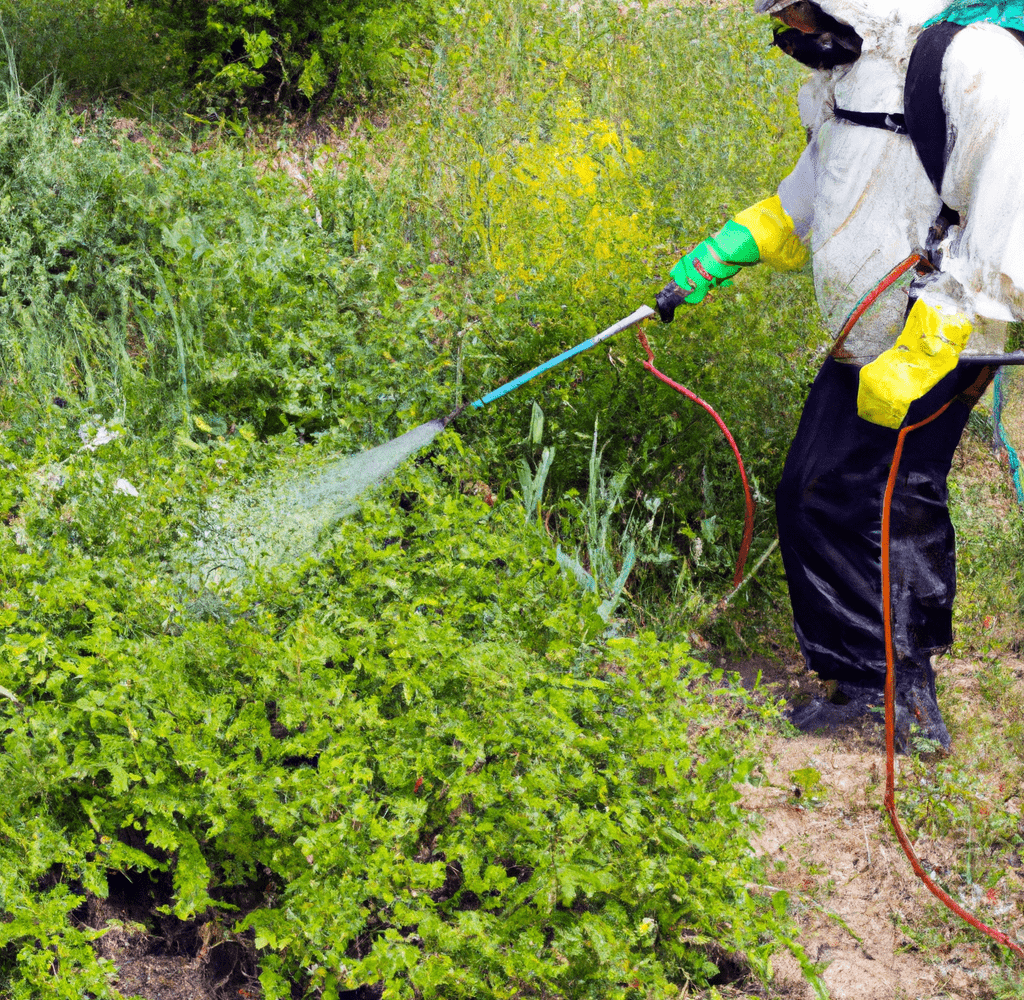
Alternative Methods for Controlling Weeds, Such As Manual Removal, Mulching, and Using Cover Crops
The role of herbicides in gardening is important but you can use other methods or a mix of techniques that can improve the health of your plants and are frequently more environmentally friendly:
- Weeding by Hand: The easiest and most direct method of getting rid of weeds is by hand. It entails digging them up with a hoe or other equipment or pulling them out by hand. For tiny gardens or spot-treating weeds that have already sprung, this strategy works very well.
- Mulching: Mulching is an excellent strategy to stop weed seeds from ever sprouting. You can prevent weed seeds from receiving the light they require for germination and growth by covering the soil with an organic layer, such as wood chips or leaves. Mulching can also preserve soil moisture and enhance the condition of the soil.
- Using cover crops: Crops cultivated expressly to cover the soil and stop weeds from sprouting are known as cover crops. They may also aid in enriching the soil with nutrients and organic matter. When the cover crop reaches a sufficient height, it can be tilled under or mowed, which will aid in suppressing any residual weed seeds and improve the soil at the same time.
Depending on the particular requirements and objectives of your garden or growing business, you can utilize these various ways alone or in combination. They provide a more environmentally friendly and all-natural method of weed control and plant health promotion.
Discussion of the Benefits and Drawbacks of These Alternatives Compared to the Use of Herbicides
The role of herbicides in gardening is important but with recent issues regarding the environment and their impact on human health, alternatives have been considered. Compared to herbicides, alternative pesticides have certain advantages, including the possibility of cost savings and little to no impact on the environment or wildlife. They also have a lower danger of contaminating groundwater.
They do, however, also have a unique set of drawbacks. These include the product’s poor availability, higher price compared to conventional herbicides, and limited effectiveness in suppressing specific kinds of undesirable plants. Alternative pesticides can be used in garden management, but it’s vital to weigh their advantages and disadvantages as well.
Bottom Line: The Role of Herbicides in Gardening
The role of herbicides in gardening is essential because they give gardeners a way to control weeds that could otherwise compete with plants for nutrients and water. Herbicides can be used in gardens to prevent undesired plants from harboring pests and illnesses, hence promoting healthy plant growth.
Herbicides can be useful in weed management, but it’s critical to use them properly and in line with label directions to protect the environment and valued plants. Herbicides can assist gardeners in creating stunning and flourishing gardens if used properly.
FAQs on The Role of Herbicides in Gardening
What function do herbicides serve in gardening?
Herbicides are used in gardening to manage invasive plants and control weed development, maintaining the aesthetic appeal and overall well-being of the garden. Herbicides are substances that limit the growth of specific plants and can be sprayed directly on weeds or on the soil to stop weed seeds from sprouting.
What kinds of herbicides are there?
Landscape herbicides, organic herbicides, plant-specific herbicides, and systematic herbicides are a few of the several kinds of herbicides. Depending on the plants to be controlled, the size of the area to be treated, and the user’s preferences, a particular herbicide will be employed.
Which herbicides are selective and non-selective?
Selective herbicides are made to solely kill some plant species, such as weeds while leaving the intended plants unharmed. On the other hand, non-selective herbicides kill every plant they come into contact with and are often applied to clear a vast area of all plants.
When should each type of herbicide be applied? How does it function?
It’s ideal to use contact herbicides in the spring and summer when the weeds are young and actively growing since they work by coming into direct touch with the plants. The optimal time to apply systemic herbicides is when the weeds are already well-established since they penetrate the plant and disseminate throughout its system, killing it from within. Herbicides used postemergence is sprayed after the weeds have already sprouted, whereas those used prior to weed emergence prevent weed seeds from growing.
What are the benefits and drawbacks of applying herbicides to your garden?
Herbicide use has several benefits, including efficiently suppressing weeds, making it simpler to get rid of weeds without damaging desired plants, and allowing gardeners to handle large-scale weed infestations with minimum effort. Herbicide use has drawbacks, including the potential for environmental damage, damage to unintended plant species, and the development of weeds that are resistant to herbicides. Before utilizing herbicides in gardening, it’s crucial to thoroughly weigh the benefits and drawbacks.


